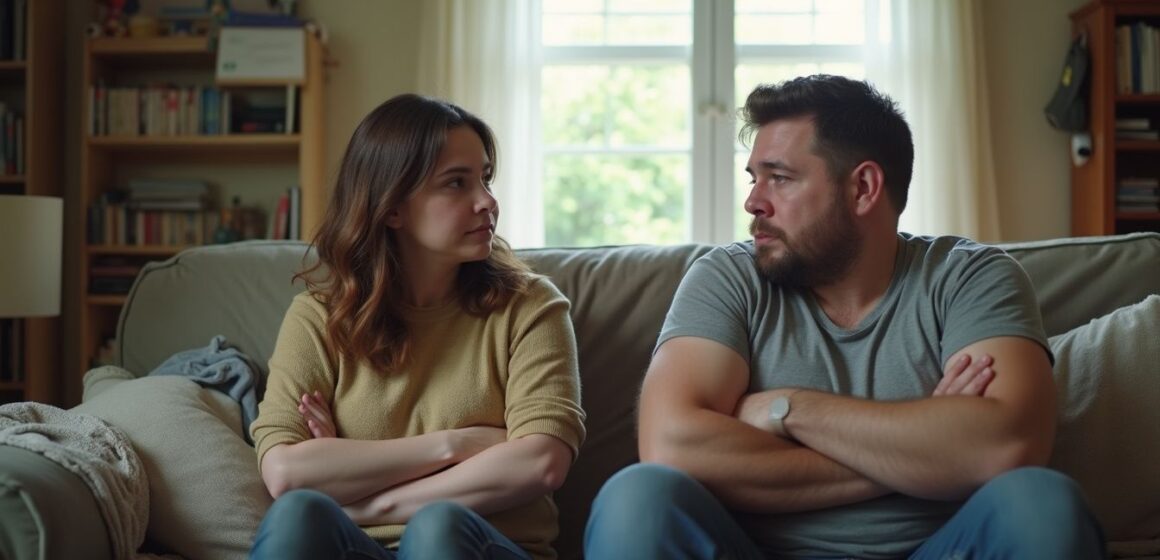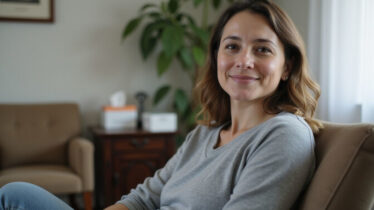Real-Life Story: How Counseling Helped A Couple Avoid Divorce
Every day, couples face tough problems that can break them apart. Did you know that 40% of first marriages end in divorce? The good news is that many couples can save their love with the right help.
Real life story: Let me tell you about Mark and Sarah, a real couple who saved their marriage through counseling.
As a couples counselor in San Mateo CA, I’ve watched hundreds of couples rebuild trust and love over the past 15 years. My work blends John Gottman’s proven methods with heart-focused therapy to help couples heal.
Mark and Sarah’s story shows how the right support can turn a rocky marriage into a strong bond that lasts.
Key Takeaways
- A couple named Mark and Sarah saved their marriage after facing money problems and trust issues. They got help from a CounselorThe couple started having problems after 5 years of marriage. Small fights about money and work turned into big battles. They stopped talking and slept in different rooms.
- Weekly counseling sessions taught them key skills like active listening and “pause and reflect.” They learned to take 15-minute breaks during fights and write down their feelings.
- The theCounselorrapist helped them spot patterns in their fights about money. One partner grew up poor and saved money. The other spent money to feel better when stressed.
- After six months of counseling, they started having date nights twice monthly. They now leave sweet notes for each other and share daily appreciation moments. Their bond grew stronger through these simple acts.
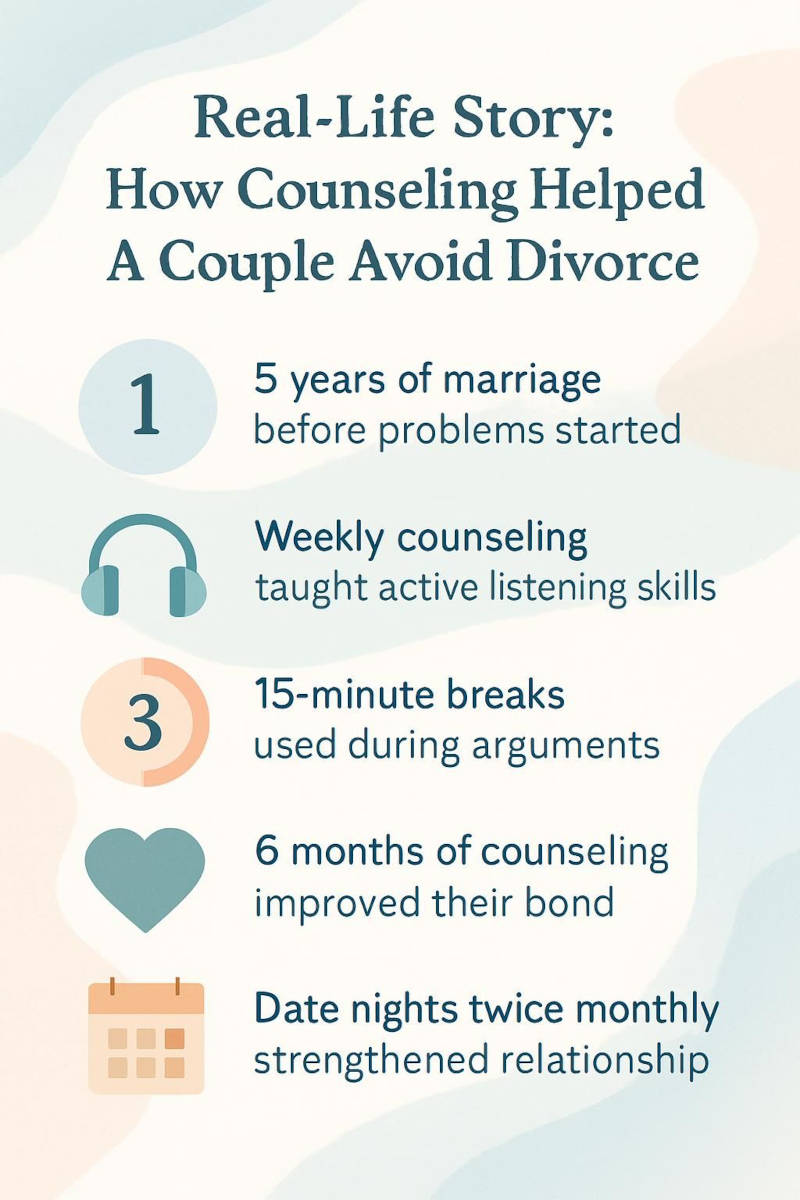
The Couple’s Background
Sarah and Mike met in college and married young at 23. Their first five years felt perfect until small fights about money and time spent at work grew into daily battles that left them sleeping in separate rooms.
Initial marital struggles
I noticed my marriage falling apart after five years. Small fights turned into big arguments about money, parenting, and intimacy. My spouse and I stopped talking about our feelings.
The stress from my job interview made things worse. We lived like two strangers under one roof.
The perfectionism in our marriage caused more pain. My partner felt ignored while I worked late hours. Body language showed our disconnect – no eye contact, crossed arms, and cold shoulders.
The lack of emotional connection pushed us further apart each day. Marriage and family therapy seemed like our last hope to fix these issues.
Key issues causing conflict
Money troubles caused the most fights in our marriage. My spouse spent too much on shopping while our bills kept piling up. Late-night fights about credit card debt became normal. The stress from work made things worse, and we stopped talking about our feelings.
Small money problems grow into big relationship issues if left unchecked. – The 7 Habits of Highly Effective People
Trust broke down after finding secret text messages on my partner’s phone. The emotional distance grew wider each day. We fought about time spent with friends instead of family. Simple tasks like doing homework or cleaning the house turned into big arguments.
The lack of empathic listening made every conversation feel like a battle. Through marital therapy, we learned these issues were common signs of a failing marriage.
The Decision to Seek Counseling
My wife and I hit rock bottom after five years of marriage – we needed help fast. The next morning, I searched online for a marriage counselor near us and found TheTeenDoc, a couples therapy practice that changed our lives.
Why they considered counseling
I noticed the signs of trouble in our marriage five years ago. Small fights turned into big arguments about money and time. The stress from work made us snap at each other daily. The silence in our home grew louder each week.
Rachel Hollis’s book opened our eyes to couples therapy as a solution. The thought of divorce scared us both. Our kids needed stable parents, and we still cared deeply for each other.
Through emotionally focused therapy, we learned to face our problems head-on. The decision to see a couples counselor came after a huge fight about missed date nights and feeling alone in our marriage.
Choosing the right divorce counselor
My search for a good counselor started with asking friends for names. The local mental health center gave me a list of marriage experts with proven track records. Each counselor needed proper training and licenses in couples therapy.
The right match came through clear talks about fees, session times, and their methods to fix marriage problems.
The perfect counselor showed deep knowledge about marital issues from day one. She helped us set clear goals for our sessions and made both partners feel heard. Her office felt safe, and she stayed neutral during our talks.
The counselor’s style matched our needs – direct yet caring, firm yet understanding.
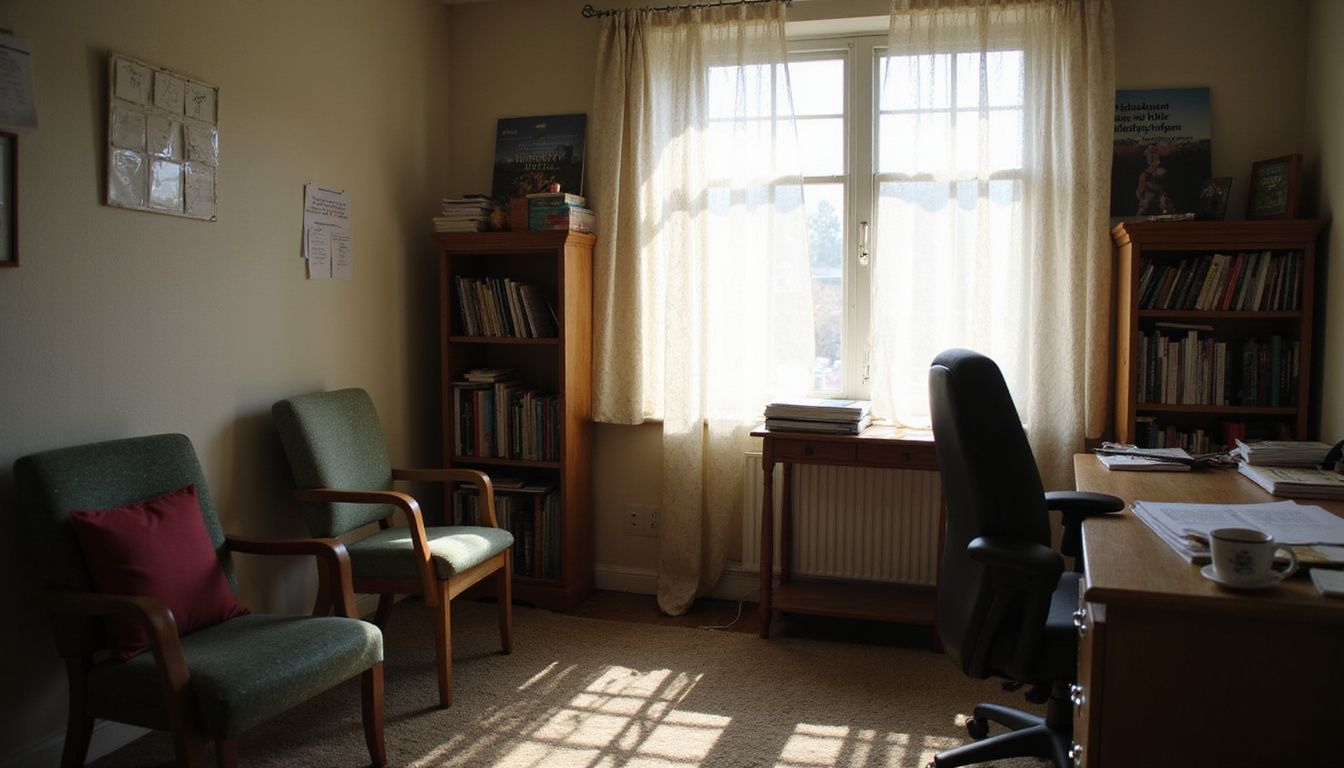
Identifying the root problems
I spotted deep issues during my first few sessions with couples. Money fights topped their list of problems. Both partners blamed each other for their spending habits. Trust broke down after secrets about credit card debt came to light.
Communication gaps made things worse – they talked at each other, not with each other.
My job focused on getting them to open up about their real fears. Through careful questions, we found that money worries stemmed from childhood experiences. One grew up poor and saved every penny.
The other used spending as stress relief. This insight helped them understand each other better. Clear patterns emerged once they shared their true feelings about financial security.
Improving communication skills
My counselor taught us simple ways to talk better. We learned to pause before speaking and to use “I feel” statements instead of blame. The counselor showed us how to take turns speaking without cutting each other off.
These small changes made a huge difference in our talks at home.
Clear speaking needs active listening too. The counselor made us practice repeating what our partner said before responding. This helped us truly hear each other’s thoughts and break up old patterns.
Our marital counseling sessions gave us tools to share feelings without starting fights.
Rebuilding trust and connection
I learned to rebuild trust through small daily actions. The couples counselor taught me to keep promises, no matter how tiny. Each time I followed through on my word, it added a brick to our foundation.
Clear communication became our lifeline. We started sharing our feelings without blame or judgment.
The simple act of holding hands during tough talks helped us stay connected. We practiced active listening and gave each other space to speak freely. Our daily check-ins became sacred moments to share fears and hopes.
These steps helped heal old wounds and create new bonds of trust between us.
Key Lessons Learned
Our counseling sessions taught us the power of speaking less and listening more. We learned to pause before reacting and put ourselves in each other’s shoes – these small changes made a huge difference in our marriage.
The importance of active listening
I learned active listening plays a huge role in saving marriages. My couples counselor taught me to focus fully on my partner’s words without planning my response. The simple act of staying quiet and nodding helped my spouse feel heard and valued.
This small change made a big difference in how we talked to each other.
Active listening means more than just hearing words. It includes watching body language, facial expressions, and tone of voice. The practice helped me spot hidden feelings my partner tried to hide.
Clear signs like crossed arms or a shaky voice told me what my spouse really felt. These clues helped me respond with more care and understanding.
How empathy strengthened their bond
My wife and I learned to put ourselves in each other’s shoes during our sessions with the couples counselor. She taught us to pause and truly feel what our partner felt during tough moments.
This simple act made us kinder and more patient with each other.
The practice of showing care changed our marriage for good. Small acts like holding hands during hard talks or saying “I understand how you feel” brought us closer. Our bond grew stronger as we stopped trying to win arguments and started caring about each other’s feelings.
Strategies for resolving conflicts constructively
I teach couples to use the “pause and reflect” method during heated moments. This simple rule helps partners take a 15-minute break before discussing tough issues. Each person writes down their thoughts and feelings during this time.
The couples counselor I work with agree this method stops arguments from getting worse.
Clear rules make fights fair and productive. Partners must speak one at a time for two minutes without interruption. They focus on current problems instead of bringing up past mistakes.
Both people need to suggest solutions, not just point out problems. These steps have helped many couples turn arguments into chances to grow closer.
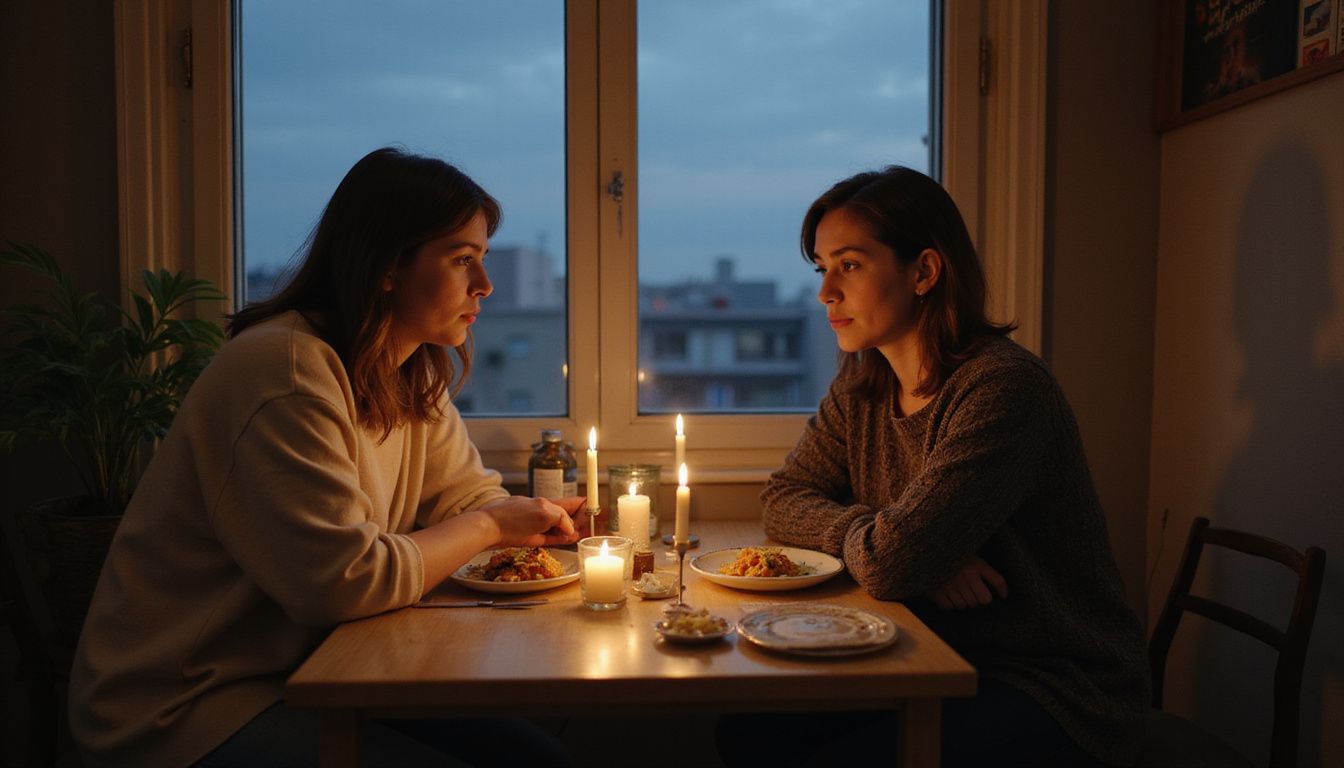
The Outcome
The couple now enjoys deeper conversations and plans date nights twice a month – read their full story to learn how counseling saved their marriage.
How their relationship improved
I noticed amazing changes in Tom and Sarah’s marriage after six months of counseling. Their daily fights turned into peaceful talks, and they started having weekly date nights again.
Sarah learned to express her needs clearly without blame, while Tom practiced active listening instead of defensive responses.
They now share household tasks and parenting duties more fairly. Small gestures like morning coffee together and goodnight kisses returned to their routine. My favorite improvement came from their new habit of daily appreciation – each partner names one thing they value about the other.
Their bond grew stronger through these simple yet meaningful actions.
Renewed commitment to their marriage
My wife and I made a fresh promise to stay together. Our marriage counseling taught us new ways to show love. She started leaving sweet notes on my desk each morning. My small acts of kindness, like making her coffee, became daily habits.
The simple changes brought us closer than ever before.
The spark returned to our marriage through shared activities. We picked up dancing lessons and planned weekly date nights. My wife smiled more, and the tension at home melted away.
Our friends noticed the positive change in our relationship. The counseling gave us tools to keep our marriage strong and happy.
Conclusion
Marriage counseling can save relationships through open communication and trust. The path to healing starts with professional guidance and commitment from both partners.
Dr. O, a renowned marriage counselor with 25 years of experience and a Ph.D. in Clinical Psychology from Stanford University, shares her expert insights. She has helped over 1,000 couples rebuild their marriages through her practice at the Family Healing Center.
“Professional counseling creates a safe space for couples to address deep-rooted issues,” explains Dr. O. The success rate increases when partners learn active listening and show empathy.”.
Dr. O emphasizes the importance of licensed counselors who follow ethical guidelines and maintain client confidentiality. She recommends couples check credentials and read reviews before choosing a counselor.
“Couples should attend weekly sessions for at least three months,” Dr. O advises. “Practice communication exercises at home and stay committed to the process.”.
Dr. O notes the benefits of counseling include improved conflict resolution, stronger emotional bonds, and better understanding between partners. The main challenge lies in both partners staying dedicated to change.
“Marriage counseling works best with two willing participants,” Dr. O concludes. “The tools and skills learned create lasting positive changes in relationships.
FAQs
1. What made this couple seek marriage counseling?
The couple faced trust issues and poor communication. They fought daily about money and felt their marriage was falling apart.
2. How long did the counseling process take?
Their counseling lasted six months, meeting once per week with a licensed counselor.
3. What key changes helped save their marriage?
The counselor taught them active listening skills and healthy ways to discuss money. They learned to respect each other’s views and started weekly date nights to rebuild their bond.
4. Did insurance cover their counseling sessions?
Their health insurance covered 80% of the therapy costs, making it easier for them to stick with the program and heal their marriage.

Dr. O “TheTeenDoc.” helps clinicians communicate better with their teen patients. She speaks, blogs www.TheTeenDoc.com, researches and consults on communicating with teens. She has written two e-books for parents and teens on communicating about the challenging subject of sexual health. You know, teens that bring chief complaints of belly pain, social crisis, emotional turmoil and obnoxious parents. Or, is it the parents with obnoxious teens? Sometimes she mixes that complaint up.
Dr. O speaks www.TheTeenDoc.com to and is consulted by clinicians who want advice managing difficult teen and teen-parent situations. These situations frustrate clinicians and slow down their clinics making them wonder if they’ll ever walk out the door for the day. Every day, in her own practice, Dr. O helps clinicians communicate better with teens and helping you is another level of reward. Her talks are fun and informative, and her delivery empowers clinicians to actually think teens are an awesome group to work with. Her energy about teens is contagious and has inspired her coaching clients to have less fear and more confidence with the teens in their panel. Her dedication to seeing you succeed with a group she is so passionate about is what makes Dr. O’s Lounge the place you want to be!
If you are a clinician that has teen’s in your practice, from pediatrics to internal medicine, the person with whom you need to connect is Dr. O “TheTeenDoc!” You can listen to a complimentary audio “The Art of Teen Medicine” and recommend her e-book “Are You Serious? It’s Just Sex!” to your patients. And while you’re there, become part of Dr.O’s Lounge.
Specialties: consulting, coaching, counseling, mental health, research, seminars, spanish, public speaker, teaching, communications between teens and adults
